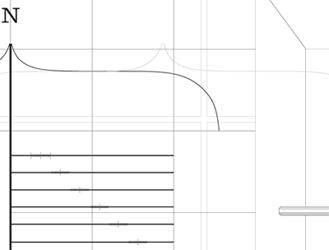
The Olympics are not simply a matter of fun and games. They are a multi-national media spectacle that--as we've seen in recent protests--can arouse and galvanize political action. The event's organizers pitch it as a zone outside of politics, but of course issues of national identity, human rights, autonomy, economic might, and foreign policy all coalesce around the Olympics. While much of the current attention to these matters is directed at Beijing, groups in Montreal and London are already forming to address the impact that the arrival of the famous torch (ceremoniously relayed in a model invented by the Nazis to promote a strong image of the Third Reich around the 1936 Berlin games) will have upon local communities. The London art space, E:vent, is among the first to chime-in with an exhibition addressing these issues. Their show, "Sound Proof" (open April 19-May 11), features six artists "using sound materials, drawings, and annotations [to create] audio and visual maps that preserve observations of transformation." These site-specific works focus on the Lower Lea Valley, below London, which will be virtually reinvented for London 2012. In a way, they will function as aural time capsules--records or "proof" of a space and culture if not doomed for demolition, then certainly slated for overhaul. The valuable question raised by the show is that of preservation--what is deemed worthy of saving (memories, relics, cultural practices) and what is the responsible, effective way to do so. This form of ethnographic programming takes "game art" to another level. - Marisa Olson

